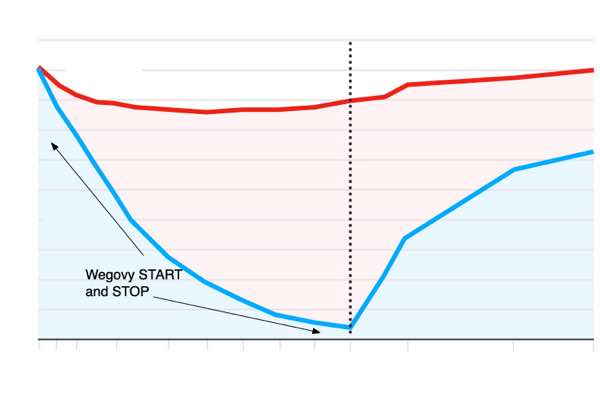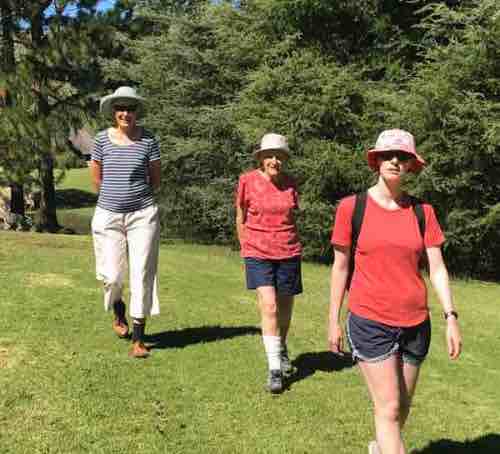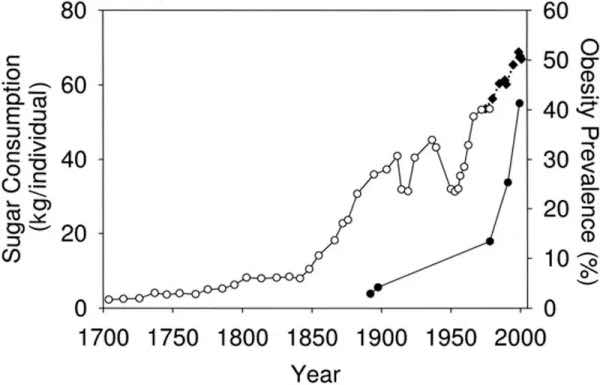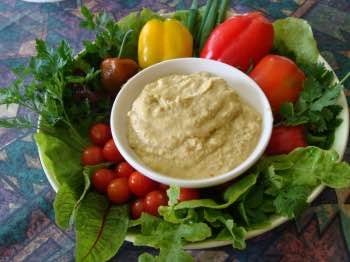- Bernard Preston homepage
- Weight Loss
- Why Look AHEAD Failed
Why Look AHEAD failed
Why Look AHEAD failed considers all the aspects of the lifestyle study that slipped so miserably in achieving permanent goals for those with metabolic syndrome.
Conferences, Expert Panel debates and Research projects blandly state that the Look AHEAD study clearly shows that lifestyle management does not permanently produce weight loss and the morbidity associated with type 2 diabetes. And it's true that it was abandoned after 13 years.
Shall we look at more deeply into why Look AHEAD failed?
"In addition to having type 2 diabetes, 80 percent of participants in both groups of the Look AHEAD program have hypertension, 93% meet criteria for metabolic syndrome and 14 pc have a history of cardiovascular disease."
Complex
Let's acknowledge up front that there is nothing simple about the management of obesity and the associated type 2 diabetes. Those looking for some little feature that they can easily tack onto their lifestyles had best look elsewhere; the new drugs like the GLP-1 agonists perhaps despite their dangers.
But if you are one of those who really wants to be healthy without medicines, read on.
I say this with confidence as a person who has permanently lost 10kg and got my blood glucose entirely under control; and I might say without a great deal of difficulty and pain. My A1c is now a very healthy 5.4.
It can be done; but whatever changes you make must be for ever. Caloric restriction or a daily walk for a few months or even a year or two is doomed to fail. The same is true of weight loss drugs.
"The GLP-1 drugs are like the crack cocaine of medications; patients have to stay on them for a lifetime or they will regain the weight."
- David M. Nathan, MD, Diabetes Center, Harvard Medical School
Make no changes that you are not absolutely determined to do for the rest of your days. Many studies clearly show that repeated cycles of weight loss and gain are far more detrimental than if you made no lifestyle or drug alterations.
 What happens if you stop Wegovy injections?
What happens if you stop Wegovy injections?Constantly famished
So why did the Look AHEAD intervention study fail so miserably? The changes looked so simple and desirable; just restrict your calories and start walking. Then everything will be hunkydory, the pounds will fall off and you can stop taking all those meds.
The pounds did fall off but they came roaring right back; so much so that the study was abandoned.
The first reason why Look AHEAD failed is that one of the cornerstones of the programme was caloric restriction; that leaves you constantly famished.
One study after another clearly shows that caloric restriction diets fail dismally in the long run; they simply are not sustainable.
In fact caloric restriction was what got America into trouble in the first place. When Radley Keys crooked the books some fifty years ago, convincing the world that fats were the cause of heart disease, obesity very quickly became a major problem.
"Real science begins with attempts to disprove one's most loved hypothesis. Keys stopped doing that after his first real test disproved the theory. His response was a concerted effort to hide the data."
- Professor Tim Noakes
And in fact we are still flirting with the false belief that cutting out high caloric foods is the way to lose weight. Fats provide satiety; any diet that restricts them is doomed to fail.
Any diet that leaves you constantly hungry will fail.
The fat in eggs, cheese and meat is what provides satiety; and the protein too, of course. Restricting them leaves you constantly thinking about food. Look AHEAD was doomed to fail from the very beginning; if only the proponents first read up on their own research.
Butter, cream and coconut oil remain more controversial. My own belief is that the dilemma is resolved by whatever else you are eating. Those enjoying meals centred on whole grains and many coloured high-fibre foods need have no fear of cholesterol. If is after all fundamental in the structure of every cell in the body.
Brisk walking or similar aerobic activity
 Brisk walking lowers blood glucose
Brisk walking lowers blood glucoseIt sounds so good; just walk briskly, get on your bicycle or into the swimming pool for more than 175 minutes per week. That is a little over half an hour a day.
And it is good but it doesn't go far enough. That brisk walk must be taken after every starchy meal; and ten minutes would probably suffice.
It came as a rude shock to me. Freshly-squeezed OJ from citrus in our own garden, without using the strainer, put my blood glucose into orbit. We are great believers in using the pulp in fruit, that's where more than half of the goodness is, so it upset my theory no end.
Equally astonishing was that followed by a brisk ten-minute walk, my BG did not even rise by a small iota; all those sugars were turned into glycogen, not blood glucose.
A three-hour hike on Saturday would fail dismally in lowering chronically raised blood glucose. So would a half hour brisk walk at lunchtime, apple in hand; that exercise needs to be taken after every starchy meal.
And it didn't take me long to discover that wasn't just my experience; it has been confirmed by strong evidence published in Medicine & Science in SPORTS and EXERCISE[2].
After dinner
Interestingly for reasons unknown that short brisk walk is most effective after dinner in the evening.
So that is another reason why Look AHEAD failed; it did not specify that exercise should be taken after meals.
Another reason is that just walking is not enough no matter what time of the day. There is clear evidence that high-intensity resistance exercise is even more effective in the "overall glucose management and attenuation of insulin levels[2]." Would turning a compost heap qualify? I'm not certain but I think so; it helped me keep the weight off permanently and get the A1c back where it belonged.
This is where a Continuous Glucose Monitor would be so useful for a few weeks. Gardening may qualify for exercise for some but not for others; the only way to be sure is testing blood sugar after these activities.
"People are making lifestyle decisions based on the glucose levels as measured on CGMs. It’s a very powerful behavioral modification that improves overall health.”
- Dr IB Hirsch, Director of the Diabetes Care Centre, University of Washington

Fiber
Another clear reason why look AHEAD failed was that the only dietary recommendation was caloric restriction. There was no acknowledgement of the way that fiber acts exactly like the GLP 1 drugs by stimulating the K-cells that release the incretin hormones; they slow gastric emptying, send signals to the hypothalamus achieving early satiety and messages to the pancreas.
Ultra-processed food
The research is fundamentally clear; ultra-processed foods are at the very epicentre of today's chronic degenerative diseases like type 2 diabetes.
So another reason why the Look AHEAD protocol failed was that its insistence on two banquets and one snack of "liquid meal replacement" each and every day; simply awful unsustainable ultra-processed food.
High protein meal replacement products like protein bars, whey powders and various shakes just substitute one poor diet with another. They simply are not sustainable; and are completely unnecessary. It's not difficult to see why look AHEAD failed.
What should be priority in managing early diabetes?
The debate at the 2024 American Diabetes Association Scientific Session between four top doctors was robust and impassioned. Their opinions[1] ranged widely from "treat obesity first" to "it's about the glucose, stupid."
They emphasised the potentially fatal complications of diabetes ranging from blindness, amputation of a limb to cardiovascular disease.

The underlying belief was that we are unable to give up sugar and other refined carbs; only medication can save us from fatal heart attacks, strokes and kidney failure.
There was no discussion why Look AHEAD failed, only that "intensive lifestyle weight loss intervention" shows no significant benefit. Despite the side effects, those that can afford it must take the medication for the rest of their lives.
"Only Professor Roy Taylor, MD made a case for the fact that there is "a substantial minority of people who want to be healthy but who don't wish to be medicalized."
Are you one of them? Then read further.
A transforming read
"This was supposed to be a diary of my first two months on the diabetes drug, recently recast as a miracle shortcut to weight loss; and a catalogue of its excruciating side effects.
But it became something else entirely. This is a story about realising I’d lived a false life as a slim person for years; and finally admitting to my obesity, then dealing with it.[3]"
Doctor: "Why don’t you tell me how you became so heavy; how do you believe it happened?"
Read between the lines
A smirking medical doctor, Yoni Freedhoff, gleefully and categorically states that "No, diet and exercise are not better than drugs for obesity." Basing his assertion on the Look AHEAD trial we now see how he got it so wrong[4].
We too of course turn up our noses at Look Ahead; an utter waste of time. Ultra-processed foods are strongly associated with chronic degenerative diseases such as diabetes; how could the trial possible have succeeded? But that does not mean diet and exercise are ineffective; you just have to do it right.
He also carefully avoids mention of what will happen if you stop the medication; and the serious side effects that it may have. For example these GLP-1 drugs cause a "more than fourfold increase in the risk of a serious eye disease resulting in blindness."
Pancreatitis is another concern; generally considered an uncommon Adverse Drug Reaction affecting less than one patient per 100 but >1/1,000. But for those taking the medication for the rest of their lives, the risk is unknown but potentially much higher.
Nor does he mention the enormous cost of the medication; having to take it for life would be quite out of reach for those without insurance.
No short cuts
So having travelled full circle we are back where we started; there are no short cuts to dealing with obesity and type-2 diabetes. Whatever changes you make, they are with you for life, be it medication, regular exercise or a return to the foods your great grandmother once ate, rich in fibre, nutrients and flavour.

Why Look AHEAD failed
Understanding why Look AHEAD failed is fundamental for those wanting permanent weight loss through lifestyle management without the use of medication.
When browsing use right click and "Open Link in New Tab" or you may get a bad gateway signal.
Newsletter
Our newsletter is entitled "create a cyan zone" at your home, preserving both yourself and Mother Earth for future generations; and the family too, of course. We promise not to spam you with daily emails promoting various products. You may get an occasional nudge to buy one of my books.
Here are the back issues.
- Lifestyle and ideal body weight
- What are ultra-processed foods?
- Investing in long-term health
- Diseases from plastic exposure
- Intensive lifestyle management for obesity has limited value
- A world largely devoid of Parkinson's Disease
- The impact of friendly bacteria in the tum on the prevention of cancer
- There's a hole in the bucket
- Everyone is talking about weight loss drugs
- Pull the sweet tooth
- If you suffer from heartburn plant a susu
- Refined maize meal and stunting
- Should agriculture and industry get priority for water and electricity?
- Nature is calling
- Mill your own flour
- Bake your own sourdough bread
- Microplastics from our water
- Alternative types of water storage
- Wear your clothes out
- Comfort foods
- Create a bee-friendly environment
- Go to bed slightly hungry
- Keep bees
- Blue zone folk are religious
- Reduce plastic waste
- Family is important
- What can go in compost?
- Grow broad beans for longevity
- Harvest and store sunshine
- Blue zone exercise
- Harvest and store your rainwater
- Create a cyan zone at your home
Did you find this page interesting? How about forwarding it to a friendly book or food junkie? Better still, a social media tick would help.
- Bernard Preston homepage
- Weight Loss
- Why Look AHEAD Failed
Address:
56 Groenekloof Rd,
Hilton, KZN
South Africa
Website:
https://www.bernard-preston.com